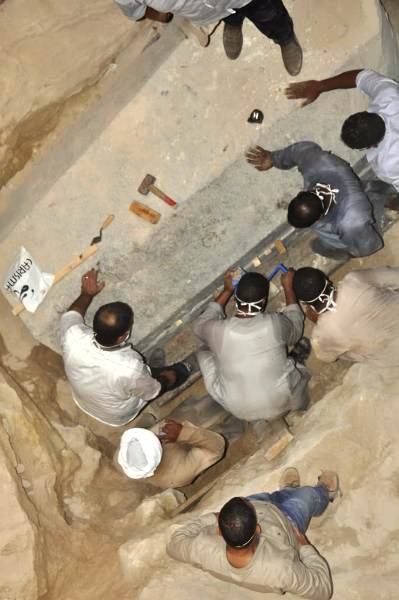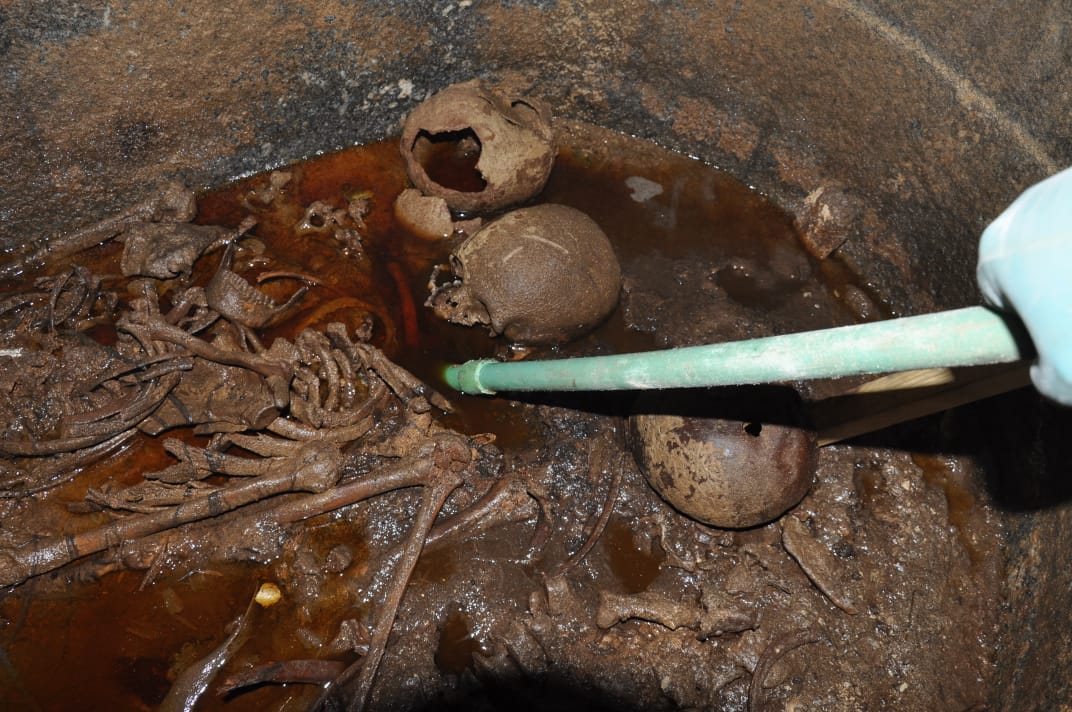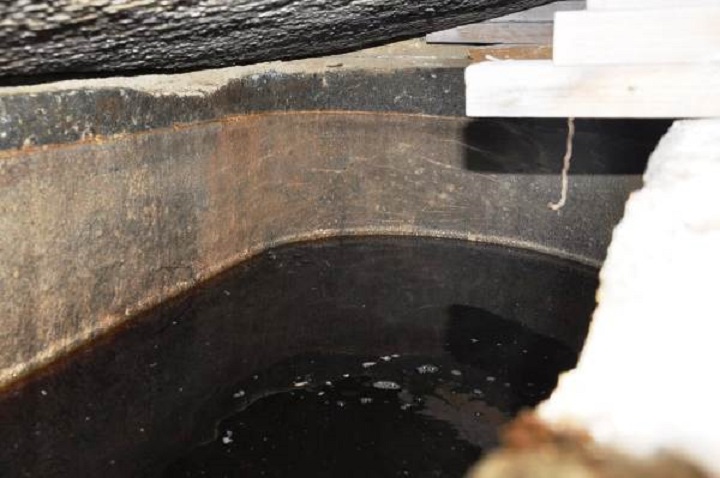Archeologists have finally uncovered a mysterious 2000-year-old sarcophagus that was discovered in Alexandria, Egypt, at the beginning of July.

There’s been a variety of speculation as to what lay inside the 30-ton black granite tomb, with some suggesting it was the long-lost tomb of Alexander the Great.
Experts removed the granite cover on Thursday to find three skeletons floating around in sewage water.
The skeletons are believed to be three warriors, as one of the skulls bears a wound resulted from the hit of an arrow, according to the Ministry of Antiquity.
The ministry said it was likely that sewage water had seeped through a fracture in the coffin.
The skeletons discovered inside the coffin will be transferred to the Alexandria National Museum for restoration, the Ministry of Antiquity said on its website. Officials will also be examining the cause of death and the era to which they belong.
The tomb is believed to be from the early Ptolemaic period, between 305 BC to 30 BC — after the death of Macedonian ruler Alexander the Great in 323 BC.

Get daily National news
Although the tomb does not contain Alexander the Great, it is still a significant find as it is relatively rare to find an unopened sarcophagus in Alexandria, according to Smithsonian.com.







Comments
Want to discuss? Please read our Commenting Policy first.